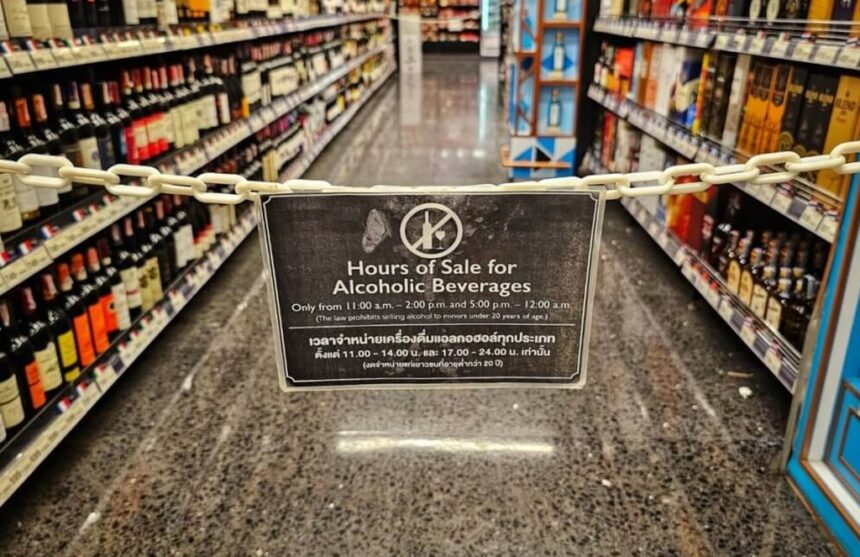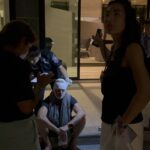BANGKOK – Thailand’s parliament has approved changes to the Alcohol Beverage Control Act, giving more authority to the National Alcoholic Beverage Policy Committee. This committee can now guide, coordinate, and enforce alcohol policies across the country.
The updated law, passed in late August 2025, targets consistent enforcement and puts public health and safety front and centre. Despite optimism for change, the controversial afternoon alcohol sales ban from 2 p.m. to 5 p.m. remains.
The restriction is still a point of frustration for shop owners and critics. During these hours, alcohol sales are allowed only in certain places like international airports, hotels, and licensed venues such as bars.
This change marks a shift in how Thailand wants to control drinking. The government’s goal is to centralize policy and improve oversight, especially given the nation’s challenges with alcohol-related issues.
Established under the original 2008 Act, the committee now has greater power to create rules, track compliance, and punish offenders. Local authorities must work with the national committee to follow the rules in the same way across all provinces. This comes after many complaints about how the old laws were enforced unevenly in different regions.
Why the 2 p.m. to 5 p.m. Alcohol Sales Ban Exists
The afternoon sales ban was set out in the 2008 Alcohol Beverage Control Act. It bans shops, supermarkets, and convenience stores from selling alcohol between 2 p.m. and 5 p.m., except for certain places like international airports, hotels, or licensed bars.
The government introduced this rule to reduce daytime drinking. The aim was to cut down alcohol-related accidents, violent incidents, and broader health risks, especially among young people and workers.
Public health campaigns in Thailand have long pushed to reduce the negative effects of alcohol. Officials say that early afternoon is a spike time for alcohol-related incidents like drunk driving and domestic violence, especially in cities.
The 2 p.m. to 5 p.m. slot is meant to break up common times when students and workers might drink during lunch breaks or right after work. This policy also matches Buddhist values, which promote moderation and discourage excess drinking. Supporters often point to these values when defending the ban.
With the new amendments, the National Alcoholic Beverage Policy Committee takes on a bigger role. Before, its role was mostly to advise, leaving most decisions to local governments and police. Now, the committee sets national rules for alcohol advertising, sales, and consumption, and can hand out tougher penalties. For example, businesses that break the rules by selling alcohol to minors or outside legal hours face higher fines and possible loss of their licences.
The committee can also declare more “controlled zones” where alcohol sales face extra limits, like near schools, temples, or hospitals. This responds to worries about underage drinking and illegal alcohol sales, especially in rural districts. In Chiang Rai, where nightlife booms thanks to tourism and border trade, local leaders are expected to join forces with the committee and improve checks for compliance.
Critics Say Rules Hurt Small Business and Aren’t Effective
People against the afternoon ban and its new expansion say the rules hurt small businesses. Shops and convenience store owners say the ban cuts into their daily earnings. In places like Chiang Rai that see many tourists, the ban frustrates both business owners and visitors.
“Tourists are confused when they can’t get a beer at 3 p.m. from a shop,” said Somchai, who runs a stall in Chiang Rai’s Night Bazaar. “Our takings are down, and it makes Thailand look less friendly to visitors.”
The Thai Retailers Association agrees, arguing that these rules hit small stores much harder than big hotels and bars. Some point out that the ban does little, since people who want to drink just buy alcohol before the restricted window or turn to unlicensed sellers.
Research from Thammasat University in 2024 found the ban barely changed drinking habits. Most simply plan and purchase earlier.
Politicians opposed to the amendment, including members of the Move Forward Party, say the law gives too much power to the national committee. They believe local leaders understand their own communities better than a central committee. “Chiang Rai faces different challenges than Bangkok or Pattaya,” said MP Thanawat Srisuk, a frequent critic. “Uniform rules won’t work everywhere and may hurt local businesses.”
Opposition groups also say the ban restricts personal freedom and takes a top-down approach to rule-making. Shift workers or those on unusual schedules, for example, may struggle to buy alcohol during legal hours. Some argue that the ban mostly impacts those who rely on small local shops. Well-off consumers can usually buy from hotels or fancy bars, making the rule unfair.
Supporters Focus on Health and Safety
Supporters, including the Ministry of Public Health and groups campaigning against alcohol abuse, stand behind the ban and tougher rules. According to the World Health Organization, Thailand sees some of the highest alcohol consumption rates in Southeast Asia, leading to serious social and economic problems. In 2024, alcohol-related crashes caused over 15,000 deaths in the country, a number often used to back the policy.
The Center for Alcohol Studies in Bangkok praised the new law, saying the committee now has better tools to tackle challenges like online alcohol sales and unlicensed distilleries. “This change helps protect families and young people,” said Dr. Nipon Chinwong, a public health advocate. “The inconvenience of the afternoon ban is a small price for fewer accidents and a healthier society.”
With the revised Alcohol Beverage Control Act now active, many are watching how the committee will use its broader powers. In Chiang Rai, a region known for lively tourism and local traditions, enforcement could get tricky. Police are already planning more checks at shops and bars, especially in border areas such as Mae Sai and Chiang Saen, where the illegal sale of alcohol has grown in recent years.
People’s views on the amendment are mixed. Some residents believe the new rules will help reduce alcohol-related harm. Others argue the rules go too far and don’t respect personal choice. Social media, including X, has seen ongoing debate. Some users call for an end to the afternoon ban. Others defend the government’s public health efforts.
For now, the 2 p.m. to 5 p.m. rule is still part of everyday life in Thailand. The push for stricter control over alcohol continues. As Thailand weighs tradition, health, and economics, the updated Alcohol Beverage Control Act will likely spark more debate in the years ahead.














